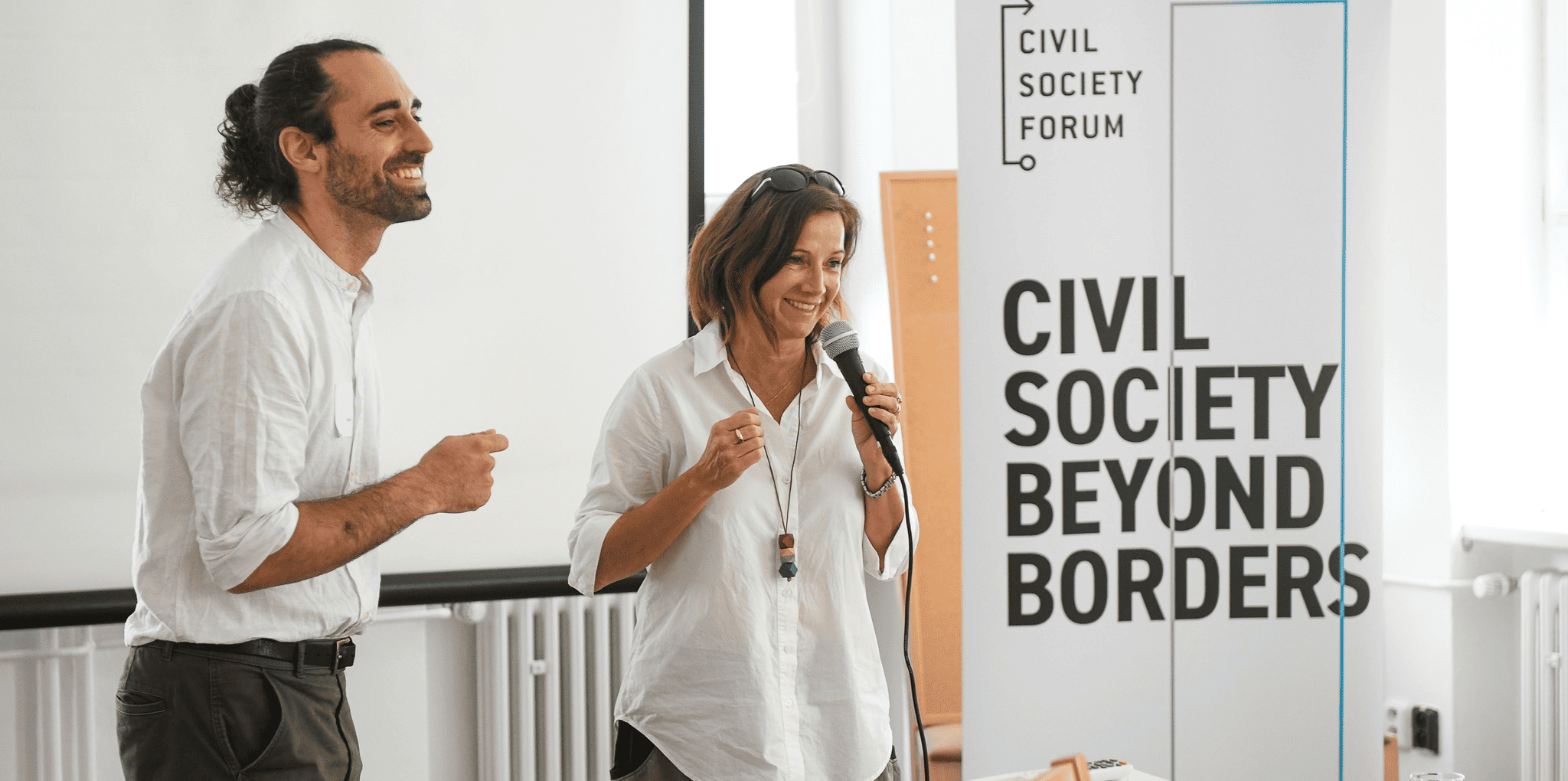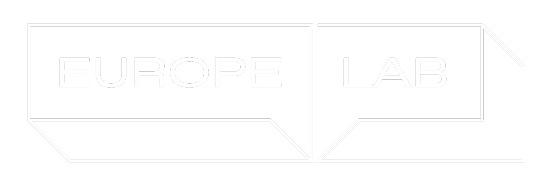Europe Lab
A leadership programme for young changemakers
Europe Lab is an annual event and a platform for professional networking and cooperation for students, young professionals and grassroots activists in their 20s and 30s. Each year, Europe Lab tackles topics from climate change and gender justice to shrinking civic spaces and democratic backsliding.

WHAT IS
EUROPE LAB?
Europe Lab is an annual event and a platform for networking and cooperation designed for students and early-career professionals working in civil society.
Held each year in a different European site of memory, the Lab offers participants a chance to engage with the region’s local history and culture of remembrance in a critical, inquisitive way. Through interactive workshops, site visits and group discussions, participants explore how memory and history shape contemporary European issues—from climate change and social justice to shrinking civic spaces and democratic backsliding.
A key part of the programme is project development. Participants design their own projects inspired by the Lab’s themes, and after the programme, they can apply for mini-grants to bring their ideas to life in their communities.
What sets Europe Lab apart is its collaborative spirit. It blends expert-led input with peer-to-peer learning, making participants active co-creators rather than passive attendees.
2015 – the first Europe Lab kicked off
alumni in the network (and growing!)
HOW TO APPLY
To apply for Europe Lab, applicants must meet the following criteria:
Be a resident of Wider Europe, including the EU, EEA, Eastern Partnership Countries, Russia, the Balkans and Central Asia
Be at an early stage of their professional career—this includes students, recent graduates or those with initial work experience in civil society, academia or related fields
Be able to communicate effectively in English, the working language of the Lab
Have experience in activism, community engagement or professional work in relevant fields
Show strong critical thinking and clear interest in social change
Be already active in their communities or networks and demonstrate a willingness to carry out follow up activities or local projects after the Lab
We strongly welcome applicants from diverse backgrounds, including ethnicity, sexuality, gender and beyond. As part of our inclusion policy, we are committed to creating a safe space where everyone feels welcome.
Participants are selected according to the relevance of their professional and academic background and the quality of their statements of interest. Our next Open Call for Europe Lab participants will happen in 2026, stay tuned!
Participation in Europe Lab is free of charge for all selected participants. Accommodation, meals and event costs during the four-day programme are fully covered by the Civil Society Forum. For participants travelling from outside the EU, the Europe Lab team will provide support with visa applications for entry into the Schengen Area.
Europe Lab 10th anniversary
2025 marked the tenth anniversary of Europe Lab, bringing together 34 participants from across Wider Europe to explore the overarching theme of hyper-polarisation through three dynamic workshop streams.
In the “Pluralist Democracy Amid the Rise of the Far Right” stream, participants shared insights and experiences from their home countries, reflecting on the growing influence of far-right movements and discussing strategies to safeguard democratic values.
The “Climate Change: Policies and Backlash” stream examined national climate policies through both analysis and interactive role play. Participants critically explored how well-intentioned policies can sometimes produce counterproductive outcomes, deepening their understanding of the complex relationship between theory, implementation and real-world impact.
In the “Persecution, Prejudice and Genocide — How Can We Prevent a Tragedy?” stream, participants shared their stories of prejudice and survival, and examined examined how lived experience and theoretical frameworks can inform efforts to prevent future atrocities.
Beyond the workshops, participants took part in excursions through historic Weimar, exploring its neoclassical heritage with a focus on Goethe and Schiller, and visiting the Buchenwald concentration camp, offering powerful context for the week’s discussions. Additional expert input from Das Progressive Zentrum provided more perspectives on far-right populism and climate politics.
This year also saw the funding of one project, “Art as an Act of Resistance in Shrinking Civic Space”, which aims to develop a practical toolkit for organisations seeking to integrate art into their advocacy and community work. The project conducts a needs assessment to identify best practices and will produce guidelines and resources to be widely disseminated across networks.
To conclude this milestone edition, a special anniversary celebration was held at the Reithaus, located within the UNESCO-listed Park an der Ilm. Joined by Europe Lab alumni, participants commemorated a decade of dialogue, learning and collaboration — and danced late into the night.
We extend our heartfelt thanks to our partners and sponsors — TRANSITION (Czech Ministry of Foreign Affairs), the Foundation West–East Encounters and the European Union — for making this tenth edition of Europe Lab possible.










